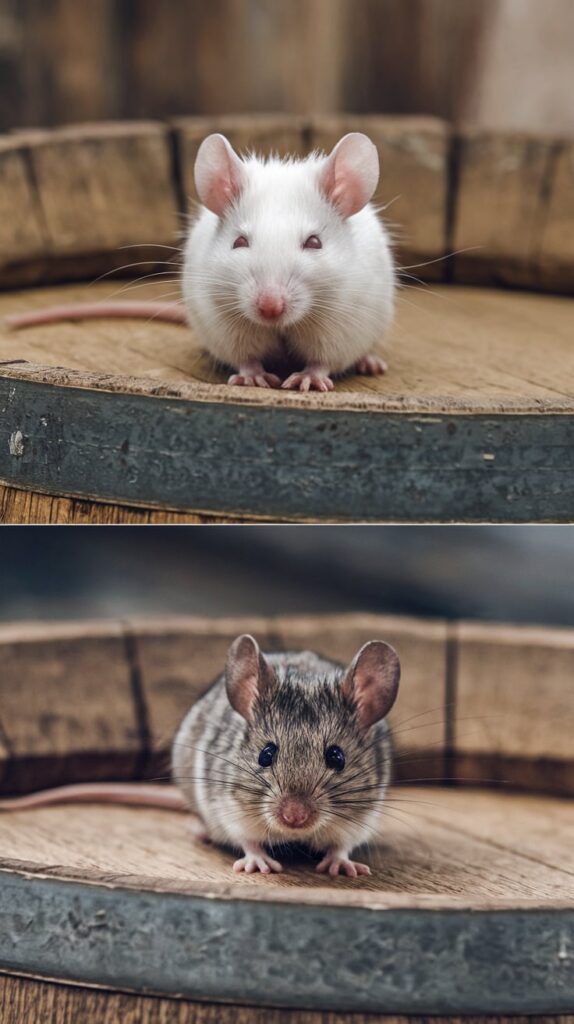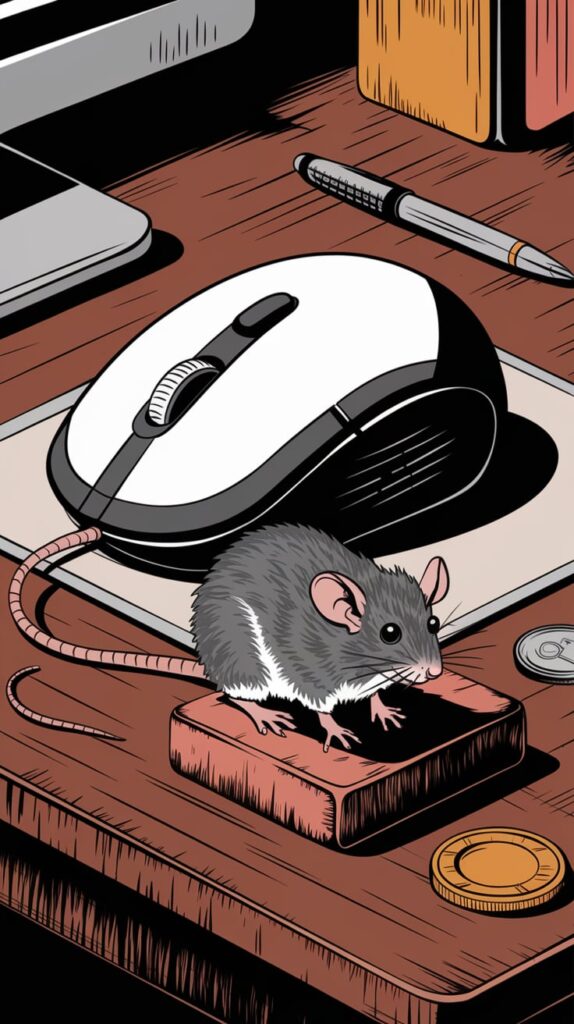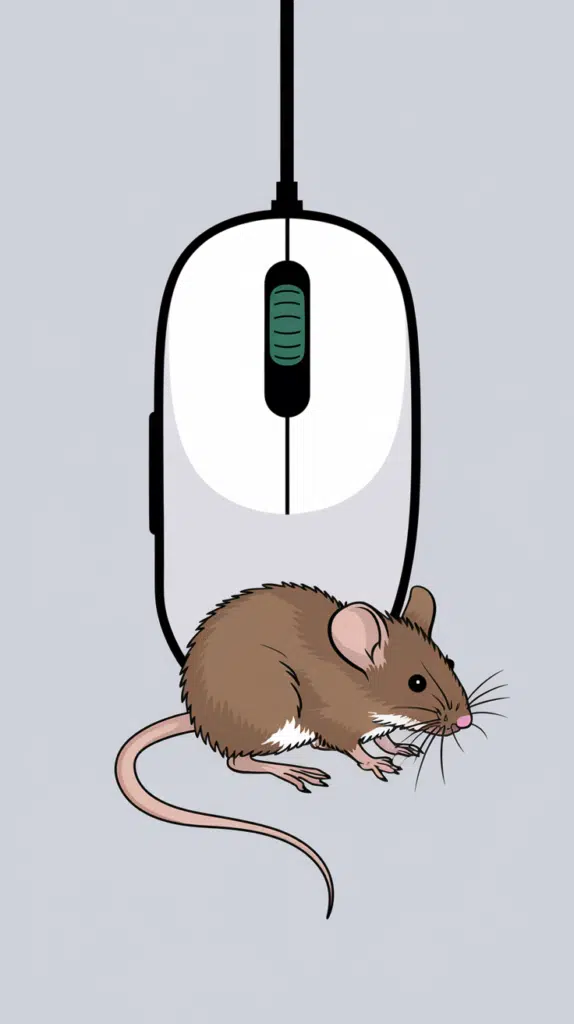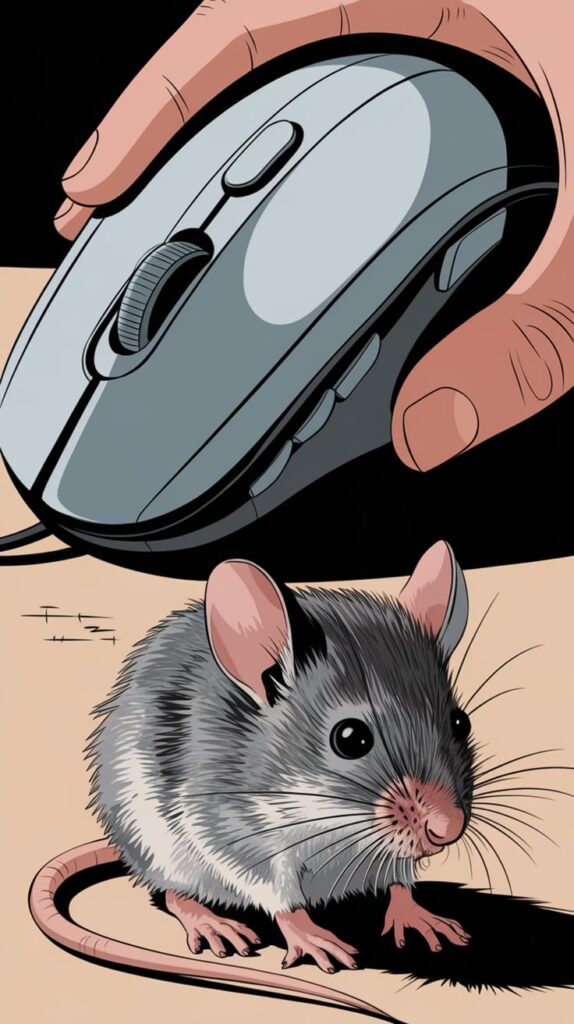Language can be a labyrinth, with twists and turns that can easily confuse even the most seasoned speakers. One such maze involves the words mouses vs mice.
Although they may seem similar, understanding the differences between them can greatly enhance your communication skills. This article will unravel the complexities of these terms, diving deep into their meanings, origins, and usages
. By the end, you’ll be well-equipped to navigate this aspect of the English language with ease.
Read more : Pre vs Post: Which Prefix to Use? – Grammar Beacon
What Does the Word “Mouse” Mean?
The term “mouse” has multiple meanings, each depending on context. At its core, a mouse refers to a small rodent, often characterized by its pointed snout, round ears, and long tail
. These creatures are common in various environments, from fields to homes.

Mouse in Biology
In the biological context, mice are typically known for their adaptability and reproductive capabilities. For example, the house mouse (Mus musculus) is frequently found in human dwellings, scavenging for food.
Understanding this aspect can give you insights into their behavior and habitats.
Example Scenario:
Imagine a researcher conducting a study on rodent behavior. She might say, “The mouse exhibited typical foraging behavior when introduced to a new environment.” Here, the term is used to highlight a specific animal and its actions.
Read more : What’s the Plural of Software? Is it Software or Softwares? – Grammar Beacon
Mouse in Technology
In today’s digital world, the word “mouse” has taken on a second life. It refers to a pointing device used to interact with a computer. This includes various designs, from the classic wired mouse to modern wireless options.
Example Scenario:
Picture a student preparing for a presentation. He says, “I need to buy a new mouse for my laptop because the old one is too slow.” In this context, the word clearly refers to the computer accessory.
Plural of “Mouse”
When discussing the plural of “mouse,” the correct form is “mice.” This peculiarity arises from English’s rich linguistic history, where many words deviate from standard pluralization rules. Instead of adding “s” like most nouns, “mouse” shifts to “mice.”
Examples:
- One mouse scurried across the floor.
- Several mice gathered around the cheese.
The transition from mouse to mice might seem strange, but it mirrors the evolution of the English language. Many nouns with Old English origins follow similar patterns, reflecting a time when language was less standardized.
Read more : Requester or Requestor Spelling – Grammar Beacon
Which One Should Be Used: “Mouses” or “Mice”?
The question of whether to use “mouses” vs “mice” can spark confusion. The simple rule is that “mice” is the correct term when referring to more than one mouse, especially in the biological sense.
However, “mouses” can occasionally be used in specific contexts, such as when talking about multiple computer mice.
Incorrect Usage:
Imagine a writer who is unclear about the terms. He might write, “The lab is filled with mouses.” This statement is misleading because it should refer to multiple rodents, not pointing devices.

Correct Usage:
In contrast, you could say, “The lab has several mice running through the maze.” This sentence accurately depicts the plural of the rodent, aligning with grammatical rules.
When Can You Use “Mouses”?
While it’s rare, “mouses” can serve a legitimate purpose. In the tech industry, when referring to different types or models of computer mice, using “mouses” is acceptable.
Example Scenario:
In a tech shop, a salesperson might say, “We have various mouses: ergonomic, gaming, and travel options.” Here, the context clarifies that “mouses” refers specifically to the devices.
What’s the Difference Between “Rat” and “Mouse”?
Understanding the distinction between “rat” and “mouse” can further clarify the use of these terms. Both belong to the rodent family but exhibit significant differences in size, behavior, and habitat.

Key Differences:
Size: Generally, rats are larger than mice. A typical rat can weigh up to a pound or more, while mice usually weigh under an ounce.
Behavior: Mice tend to be more curious and exploratory, while rats are typically more cautious and wary of new environments. This difference can affect their behavior in captivity and the wild.
Habitat: Mice are often found in homes, while rats are more likely to inhabit urban areas, scavenging for food.
Example Comparison:
Imagine a city park where a child spots a mouse nibbling on a piece of bread. Nearby, a rat scurries away, cautious of the approaching crowd. This scenario illustrates the behavioral differences between the two rodents.
Origins of the Word “Mouse”
To fully appreciate the word “mouse,” it’s interesting to explore its origins. The term can be traced back to Old English, where it was written as “mūs.”
This word is derived from the Proto-Germanic term “mūsiz,” showcasing the rich linguistic evolution that has taken place over centuries.
Linguistic Evolution:
The transition from “mūs” to modern “mouse” highlights the way language evolves, influenced by cultural and societal changes. The same can be said for its plural form, “mice,” which further reflects the irregularities often found in English.
Using “Mouse,” “Mice,” and “Mouses” in Sentences
Let’s explore how to use “mouse,” “mice,” and “mouses” correctly in sentences. Context is key when determining which term to use.
Mouse:
- I caught a mouse in the trap last night.
Mice:
- The children were fascinated by the mice in the pet shop.
Mouses:
- For the gaming tournament, I brought my two favorite mouses—one wired and one wireless.
Additional Example Sentences
Mouse: The technician replaced the faulty mouse during the computer repair.
Mice: In biology class, we learned how mice are used in research.
Mouses: The office provided each employee with ergonomic mouses for better comfort.
Read more : Skill-Set vs Skillset – Grammar Beacon

Common Misunderstandings
Despite the clarity surrounding these terms, misunderstandings still persist. Let’s address a few common misconceptions:
Misunderstanding 1: “Mouses” is Always Incorrect
While “mouses” is incorrect when referring to the rodent, it’s acceptable in specific tech contexts. Clarifying this can help avoid confusion.
Misunderstanding 2: “Mice” Can Refer to Computer Devices
Many people mistakenly use “mice” to refer to multiple computer mice. However, the term “mouses” is more fitting in this context.
Read more : Luis’ or Luis’s Possessives – Grammar Beacon
Misunderstanding 3: All Rodents are Mice
Not all small rodents are mice. Recognizing the differences between various species can help clarify discussions.
Practical Tips for Avoiding Confusion
To prevent confusion between mouses and mice, consider these practical tips:
Context Matters: Always pay attention to the context in which the words are used. This will help you determine whether to use “mice” vs “mouses.”
Check the Audience: Tailor your language to your audience. If you’re speaking to a tech-savvy group, using “mouses” may be more appropriate.
Practice: Regularly using these words in your writing and speech can help reinforce the correct forms. Practice makes perfect!
Here’s a summary table of the key points from the article on Mouses vs Mice:
| Topic | Details |
| Definition of “Mouse” | Refers to a small rodent and a computer pointing device. |
| Plural Form | The plural of “mouse” is “mice.” |
| Usage of “Mouses” | Can refer to multiple computer mice; rarely used for rodents. |
| Difference Between “Rat” and “Mouse” | Rats are generally larger, more cautious, and found in urban areas, while mice are smaller and more curious. |
| Origin of the Word “Mouse” | Derived from Old English “mūs” and Proto-Germanic “mūsiz.” |
| Example Sentences | – Mouse: “I caught a mouse in the trap.” – Mice: “The children loved the mice.” – Mouses: “I brought my two favorite mouses.” |
| Common Misunderstandings | – “Mouses” is acceptable in tech contexts. – “Mice” should not refer to computer devices. – Not all small rodents are mice. |
| Practical Tips | 1. Context matters. 2. Check the audience. 3. Practice using the terms. |
This table encapsulates the main points discussed in the article for quick reference!
Read more : Excel or Accel – Grammar Beacon

Conclusion
Understanding the differences between mouses vs mice is essential for effective communication. The correct plural of “mouse” is “mice,” while “mouses” can refer to multiple computer devices.
By grasping these nuances, you can navigate the intricacies of the English language with confidence.
Sources
- Merriam-Webster Dictionary
- Oxford English Dictionary
- The American Heritage Dictionary of the English Language
With a firm grasp of these distinctions and a little practice, you’ll be well-prepared to tackle similar challenges in the future. Embrace the beauty of language, and enjoy your journey through its complexities!

James Logan is a seasoned blogger and language enthusiast behind Grammar Beacon. With years of experience in grammar and writing, James shares his expertise through insightful and engaging content. His passion for clear communication and linguistic precision shines in every post, making complex grammar concepts accessible and enjoyable for readers. Follow James for expert advice and tips to refine your writing skills.






